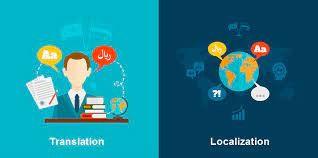The Growing Importance of Spanish Translation and Localization





There are two main types of translation: literal and interpretive.
● Literal translations are direct, word-for-word translations that attempt to maintain the text's original meaning as closely as possible.
● Interpretive translations take more liberties with the original text to better convey its meaning to the target audience.
Some of the benefits of Spanish translation and localization include the following:
● Access to a wider market: By translating your website or app into Spanish, you can tap into the growing Hispanic market in the United States and other Spanish-speaking countries.
● Improved search engine optimization: Translating your content into Spanish can help you rank higher in search engines for Spanish-speaking users.
● Increased sales and conversions: Localizing your content for the Hispanic market can help boost sales and conversions. Hispanic consumers are more likely to purchase products or services from websites in their native language.
● Enhanced customer satisfaction: Providing translated content will give your Hispanic customers a better experience on your website or app, leading to enhanced customer satisfaction levels.
● Improved brand image: Offering translated content can help improve
The need for accurate and culturally-sensitive translations will only grow as the world becomes more interconnected.
Spanish is one of the most widely-spoken languages in the world, making it an essential language for businesses to translate their content into.
By partnering with a professional Spanish translation agency and localization company, you can ensure that your message is communicated accurately and effectively to your Spanish-speaking audience.



